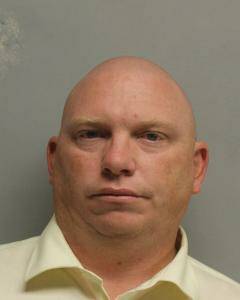By HUNTER BISHOP
Tribune-Herald staff writer
Hawaii Electric Light Co. has begun installing new meters that transmit readings via radio transmission. The new meters aren’t exactly “smart,” but they’re more intelligent than the electromechanical meters that now measure electricity used in most Hawaii Island homes.
The new “advanced” meters transmit the amount of electricity used by a customer a short distance in one direction, allowing the utility to collect meter readings without stepping onto the customer’s property, eliminating the monthly visit from the HELCO meter reader.
About 70,000 residential customers on Hawaii Island have meters in their homes that determine how much electricity they use, but the vast majority of them still have standard electromechanically operated meters with dials that must be manually read to obtain the reading.
Until last month, customers who were unable to accommodate the HELCO meter reader due to not being home, animals in the yard or other reasons, were given exceptions allowing them to read the meter and report the results to HELCO themselves. But the administrative costs of relying on customers to read the meter correctly and send the results to HELCO on time were higher than the costs of sending a meter reader to the home, said Curtis Beck, energy services manager.
HELCO says it meter readers are more efficient than relying on customers, and the exceptions granted — fewer than 200 — increased the company’s administrative costs to read the meters. “We do find it’s caused inaccuracies and billing errors,” Beck said. “We’re continuing to work with customers.” In March, the customers who had been reading their own meters for years were asked to make new arrangements for the HELCO meter reader or have the company install a new advanced meter for free.
HELCO’s Itron-made encoder receiver transmitter (ERT) meters only measure the amount of electricity used in a residence at the time of transmission and send it a short distance to an employee with a hand-held device who collects the data at the “fenceline” of the property, Beck said.
Overall, about 2,500 of the higher-tech meters have been installed at Hawaii Island homes, said David Okamura, technical superintendent in HELCO’s Distribution Department.
Potentially harmful radiation emissions from the devices are far below the level the FCC considers safe, numerous studies show, yet smart-grid opponents claim studies are flawed and that radiation from such devices can cause cancer and other health issues. Itron says its meters generate radio frequency energy levels that “are a fraction of the exposure limits specified by regulatory bodies including the (Federal Communications Commission) and Industry Canada.”
Truly “smart” meters can transmit data both ways and control a customer’s energy use in the home, prompting concerns for potentially intrusive collection and abuse of the data. Others worry about potential harm from radiation, especially from the steady accumulation of a variety of radio frequency transmission devices filling the airwaves. David Kurohara, HELCO’s customer services supervisor, said a few Hawaii Island customers raised concerns about the advanced meters but none refused to have the meter installed.
The Kauai Island Utility Cooperative is undertaking a $12 million federally funded project to install 33,000 smart meters to its customers over a five-year period. That project has generated opposition due to potential health and privacy concerns, however HELCO has no plan at this time to install smart meters in all Hawaii Island homes, Beck said.
HELCO intends to expand the use of the ERT meters wherever possible on Hawaii Island, however, Beck said. “We’re doing everything we can to streamline costs.” The new meters cost about $60 each, twice as much as the electromechanical models, but they are more cost-efficient and generate savings for the utility over time.
The shareholder-owned public utility is eyeing a variety of potential cost reductions with the introduction of new technologies, Beck said. “We’re looking at other options, … continuing to look at different things.”
Email Hunter Bishop at hbishop@hawaiitribune-herald.com.





